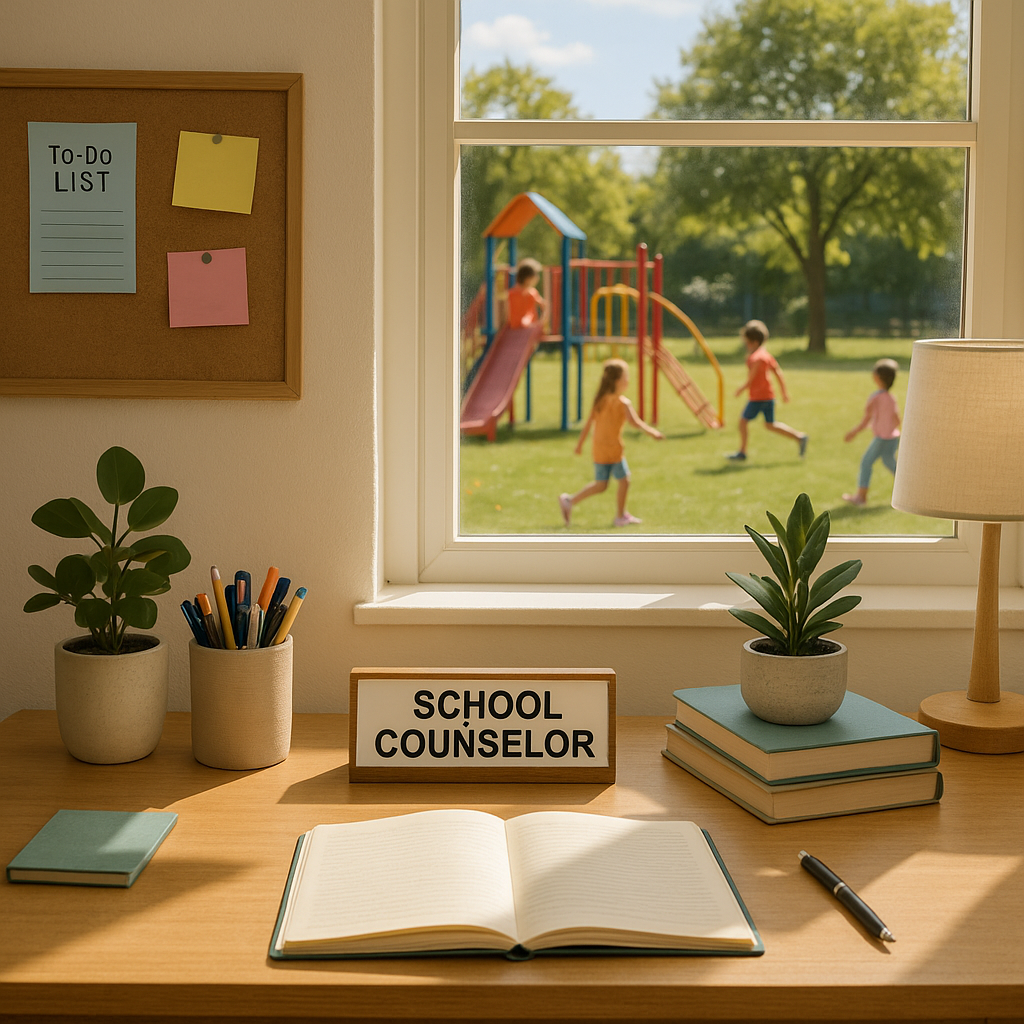A Fresh Start: Tips for School Counselors to Start the Year Strong
Read Time 4 mins | Written by: Erica Pattillo

There’s nothing quite like the first days of a new school year, the buzz of energy in the halls, the hope in students’ eyes, and the endless possibilities that lie ahead. School counselors hold a special place in the school community supporting students, collaborating with staff, partnering with families, and often serving as the emotional heartbeat of the building. School counselors have the privilege of cheering on students and families during their successes and being a steady source of support during their most challenging moments.
Whether this is your first year in the role or you've been doing this work for years, the start of the year is a powerful time to lay the foundation for connection, consistency, and community.
Here are some things that have worked for me during the 2 decades I spent being a school counselor:
1. Start Small: Routines & Structure Matter
For some students, summer isn’t always relaxing or joyful; it can be a time of loneliness, instability, or unpredictability. As the school year begins, some students aren’t looking for all the back-to-school energy, they’re looking for calm, routines, and a safe space to land.
One thing that’s been especially helpful for me is starting the year with consistent check-ins and classroom introductions. This builds comfort and trust right away, not just for students, but for staff as well. When routines are clear and consistent, and students know what to expect, they feel more secure and confident navigating their day. This can include simple practices like hallway greetings, identifying clear ways for students to request a break, or introducing calm-down strategies. Sharing tips with families about building structure at home such as bedtime routines, homework habits, and screen time limits can also make a big difference.
When things feel consistent, students feel safe. And that sense of safety is what helps them open up, build trust, and truly thrive.
2. Prioritize Connection Before Content
The first few weeks should be about building relationships as much as setting expectations. We know students do their best when they feel welcomed, supported, and connected.
Make it your goal to learn as many student names as possible. Use “get to know you” lessons, interest surveys, or hallway high-fives to start building meaningful connections. Pay close attention to the students who naturally gravitate toward your space early on and gently put supports in place, so they know you’re there for them, even before challenges arise.
3. Build a Culture of Belonging
School counselors play a big role in shaping the feel of a school and helping it become a place where students feel included, supported, and truly like they belong. This has always been something deeply important to me. When students don’t feel like they belong, they can struggle with academic disengagement, social isolation, and mental health challenges. Attendance can suffer, grades may drop, and the risk of dropping out increases.
On the other hand, feeling a sense of belonging has a positive impact on academic performance, attendance, and overall well-being. Over the years, I’ve found that certain strategies, when put in place from the start, can make a real difference in helping students feel connected.
One key approach is partnering with teachers to promote inclusive language, restorative practices, and strong peer relationships. Hosting community-building activities, small groups, or lunch bunches can create space for meaningful connection. It’s also important to work with administrators, teachers, and staff to ensure every student from the most outgoing to the most withdrawn, has an adult they feel connected to.
Belonging isn’t something you can teach; it’s something students feel. And as school counselors, we help create that feeling through the way we show up every day.
4. Set Purposeful, People-First Goals
It’s easy to get caught up in the day-to-day whirlwind which can involve juggling multiple buildings, calendars, classroom lessons, MTSS meetings, meeting with students, and paperwork. But amid all the moving parts, don’t lose sight of the why behind your work. Remember, every conversation, every check-in, and every small connection you make matters and it all adds up to the difference you’re here to make in students’ lives.
It’s important to set clear goals each year around the student's needs or topics that feel most important to focus on. Think about any specific challenges or patterns you’re noticing and how you can be more proactive about addressing them. Your goals might include supporting certain student groups, planning classroom lessons, hosting community nights, or organizing lunch bunches, whatever fits the needs of your school community.
5. Keep the Hope
The start of school is filled with promise, for every student, every teacher, every counselor. That sense of “newness” is powerful. Let it guide you. You have the opportunity to be a steady adult for a student who feels lost, a bridge between home and school for a family going through a crisis, and a cheerleader for a colleague who’s feeling overwhelmed. But you also get to be part of the good stuff like celebrating student successes, sharing in great news, and watching growth happen. That’s no small thing, it’s powerful work that makes a real difference every single day!
Final Thoughts
As you step into this new school year, remember: you are not just a support person, you are a cornerstone of your school community. Your work shapes the culture and your relationships open doors. As school counselors you get the privilege of being there to celebrate with your students and families when some really amazing, happy, and exciting things happen, but you also are there to comfort and grieve with them when incredibly sad, heartbreaking, unthinkable, and unfair things happen.
So take a deep breath, trust your instincts, and lean into the magic of new beginnings.
You’ve got this. You're exactly who your students need. ❤️